- Home
- Vince Flynn
American Assassin: A Thriller Page 13
American Assassin: A Thriller Read online
Page 13
"Maybe."
"Technically you don't work for the CIA."
"But I work for you."
"That's correct. The important thing is that you have no record of ever working for the federal government, and we'd like to keep it that way."
Rapp thought long and hard about what he was about to say. "So I'm a hired gun."
Kennedy's squinting eyes showed that she wasn't exactly in love with the label. Rapp surprised her even more by what he said next.
"How about assassin?"
She frowned. "No."
"By my estimate, I've fired around twenty thousand rounds of ammunition since arriving here."
"And you've become quite the marksman."
"And what's the point of all of this training? To keep shooting paper targets ... or to eventually sink a bullet into a target's head?"
"You know the answer."
He did. "Remember the first time we met?"
She nodded.
"You told me there are people in Washington who think that we need to take a more aggressive approach with these terrorists."
"Yes."
"But they don't have the courage to say so publicly."
"It would be foolish for them to do so. We live in a civilized society. They would be thrown out of office."
"And a civilized society would never condone assassination, even in instances where it involved national security."
"Not unless we were at war, and even then it would be tricky."
Rapp digested that for a moment and then said, "I'm not into semantics. Private contractor, hired gun, operative..." he shook his head, "killer ... The point of all of this is to go out, find the enemy, and put a bullet in his head. Right?"
"I suppose that is an accurate definition. I suppose the answer is yes."
"So I'm an assassin."
"Not yet," she offered with a sly smile. "You haven't killed anyone."
Rapp looked in the mirror at his reflection and wondered if he really knew himself. The college athlete looked back at him with the innocence of youth. The public face in no way jibed with the thoughts of retribution that filled his head. Inside he was a much older man. A jaded, hard man who was now a trained killer. He thought again of his conversation with Kennedy and his new profession. He was ready. Eager really, but not in a reckless way. More methodical perhaps than at any time in his life. He asked himself again if he should proceed with his plan. The answer came back a resounding yes.
Rapp secured the silenced Beretta in a shoulder holster and covered it with a lightweight blue and silver reversible running jacket. He stuffed one of the surveillance kits into a fanny pack and strapped the pack to his waist. He put a dark blue Nike baseball hat on his head and checked himself in the full-length mirror on the inside door of the armoire. There was a slight bulge under his right arm where the 9mm was hoistered. As a last measure he grabbed a white towel from the bathroom and looped it around the back of his neck. He stuffed the ends inside the running jacket, zipped it up, and checked himself in the mirror. The bulge was no longer noticeable. Rapp lowered the zipper, turned to the side and stuck his left hand inside the jacket. He gripped the Beretta and attempted to aim the weapon. The silencer caught on the jacket. He tried again, this time partially drawing the weapon, but keeping it hidden inside the jacket. He found it worked best if he raised his right arm as if he were checking the time on his wristwatch. Rapp practiced the move fifty more times until he was completely comfortable with it. Finally, he checked the alley and then left the apartment, locking the door behind him. He decided to skip stretching before the run. No sense in giving the neighbors time to observe him.
Whenever possible, reconnaissance is best done on foot. A satellite can't give you the smells and sounds of a neighborhood, and it can't see what might be lurking behind a window or under the awning of an apartment building. A car isn't bad, but then again cars usually travel at fairly high speeds, placing them in the area of concern for a few seconds at most. Often they were the only choice, but in this situation, walking the neighborhood was the best option. Or in Rapp's case, running it.
He took off at a trot. From studying the file, Rapp knew there was a park a block down the street from Sharif's apartment. The previous night he'd found a low wall that offered a decent vantage point where he could stretch and keep an eye on Sharif's building without drawing too much attention to himself. It was a mile and a half to the park. After one mile Rapp stopped at a public phone and punched in an international calling card number using the knuckle of his forefinger. When he heard the dial tone he punched in the number for the phone service. Five seconds later he heard the prerecorded greeting. At the beep he left a coded message in Arabic that told Hurley everything was proceeding according to plan, which technically was the case, but probably not for much longer.
Rapp carefully placed the phone back in the cradle and took off for the park. He circled the entire area twice and saw nothing that would lead him to believe that there was any surveillance. There were a few doormen who were out sweeping, a couple of early morning exercisers, and some people walking their dogs, but no police. Rapp entered the park at seven-forty-one and settled in by the wall. He started stretching his calves; first his right for thirty seconds and then his left. He'd positioned himself so that he had a clear view of the front of Sharif's apartment building. There was no wind and Rapp guessed the temperature was in the high fifties. According to the Brits, Sharif's apartment was one of two on the fifth floor. It was a big place, totaling forty-five hundred square feet. His mother, his wife, and one of his daughters lived with him.
Rapp started on his calisthenics and kept track of the people entering and leaving his corner of the park. Every minute or so a pedestrian passed just outside the park. None of them paid him an ounce of attention. It was the same the world over. Most of these people had been sound asleep thirty minutes ago and they were now off to start their daily grind. They would be lucky if they were fully awake by the time they reached their offices.
Rapp did fifty push-ups, followed by fifty sit-ups, and then stretched some more. At eight he checked the apartment door and his pulse quickened just a touch. At eight-oh-five he frowned and started to doubt the accuracy of the surveillance report. Then at eight-oh-seven the apartment building's doorman stepped outside and held the door open for a plump man and a little brown Dachshund. The man was wearing sunglasses and a long black trench coat. He had his collar turned up against the morning chill. The sunglasses, coat, and dog all matched the photos from the surveillance report. It was Sharif.
Rapp glanced at the open park bench about eighty feet to his left and started doing more sit-ups. Every time he rose, he could look over the wall and see Sharif moving closer with his dog. Every time he lowered himself to the ground he thought of his orders. The plan was for Rapp to arrive two days early and conduct countersurveillance to make sure they weren't being watched. He would then call the service and flash them the all-clear. Hurley and Richards would arrive on the third day and they would begin direct surveillance on the target for a minimum of five days. If all went well, they would then make their move.
Rapp let out a slight grunt even though the sit-ups were easy. Sharif was almost to the bench. Rapp lowered himself to the ground and rested for a second. The entire operation seemed far too complicated. Far too many moving parts, as his college coach liked to say. Too many places where something could go wrong. Rapp began another set of twenty-five sit-ups. Sharif was just arriving at the bench. The man bent over, undid the dog's leash, and tossed a small blue ball into a grassy area. The little brown sausage took off after it. When Rapp came up the next time, Rashid had a mobile phone out and was punching in a number. Kennedy had played a tape to Rapp and Richards two weeks earlier on which Sharif implicated himself in a number of illegal dealings with known terrorist organizations. Rapp asked her where she got the intel, and she politely told him it was classified information. Rapp guessed it came from these morning chats on his
mobile phone.
Rapp did another sit-up and thought of Dr. Lewis, the shrink. The man must have asked him in every conceivable way how he thought he would cope with taking another human life. Rapp had answered that question so many times he finally said to the shrink, "Well ... I guess I won't know until I kill someone."
"That's right," Rapp muttered to himself. The whole idea behind the Orion Team was that it would have a small footprint. It would cut through all the bureaucratic BS and get things done in a more expeditious manner. And of course deniability was paramount. Rapp finished the set of twenty-five and lay flat on his back for sixty seconds, playing the entire thing out in his mind's eye. The longer they were on the ground in Istanbul lurking around Sharif's apartment and office, the greater the chance they'd be noticed. He didn't like that one bit. He also didn't like the idea of dragging this thing out when the solution was so obvious. He thought of how mad Hurley would be and dismissed the thought almost immediately. The man was always mad about something.
Rapp thought of the past three years. All the sleepless nights when he had yearned for the opportunity to meet just one of the men behind the downing of Pan Am 103. When he had imagined down to the most minute detail what he would do to them. And now he had the man who had supplied the plastic explosives and military-grade fuse and detonator sitting in his sights. He'd waiting long enough. When the best course of action was staring you in the face you should take it. Rapp hopped to his feet and did a couple of side bends before walking over to a tree. He stretched one thigh and then the other, stealing a glance at Shariff as he did so. The man was too busy yapping on the phone to notice Rapp.
Rapp did a few more stretches and took a quick inventory of his surroundings. He counted four people within two hundred feet. The closest had just passed by on the sidewalk. Rapp waited to give the woman a good head start and then stepped out from behind the tree. His feet fell silently on the dirt jogging path that ran in front of Sharif's bench. He unzipped his jacket a foot and slid his left hand inside. His thumb found the safety. He flipped it up. Rapp then pulled his hand out of his jacket and kept moving toward the target, who had yet to notice him. Twenty feet away Rapp's pulse was as steady as it had ever been. His eyes narrowed a bit and he took in a deep breath. He could hear the man clearly now. It was same voice he'd heard on the tape Kennedy had played for him. He was talking about an extremely valuable shipment.
Rapp never flinched, never wavered for a second. He was only ten feet away when Sharif finally looked up. Rapp gave him a friendly nod and then raised his right wrist to look at his watch. A split second later his left hand slid between the folds of his jacket and found the grip of the Beretta. He swung the gun up, the holster acting as a sling, the blue fabric of his running jacket bulging just slightly.
Rapp's finger was prepared to squeeze the trigger when he changed his mind. He wanted to look into Sharif's eyes. He wanted to confront the man. The two men locked eyes for a second. Rapp smiled at him, and then changed directions, took two steps, and casually sat down on the bench next to the arms dealer. Rapp leaned forward and jabbed the end of the silencer into Sharif's ribs.
A look of panic washed over the Turk's face. His mouth was agape, the mobile phone held in his right hand a half foot from his face. A man's voice could be heard squawking from the tiny speaker. Rapp elevated the silencer a few inches and squeezed the trigger. The bullet pierced the fabric of the running jacket, leaving a small hole, and then a millisecond later it shattered the cell phone. Sharif let out a yelp, dropped what was left of the phone, and clutched his bloody hand.
Rapp jabbed the silencer firmly into the man's ribs and in a menacing voice said, "How do you sleep at night?"
"What?" Sharif asked in total confusion.
"You heard me, you piece of shit. How do you sleep at night? Do you think of all the innocent people you've helped kill? Do you think of their faces?" Rapp poked him hard with the silencer. "Do you think of their final seconds ... how they react when a bomb goes off in the cargo hold of a 747 at thirty-one thousand feet?" Rapp saw the recognition and then fear in the man's eyes.
"I don't know what you're--"
"Shut up," Rapp commanded. "I know who you are, and I have no desire to listen to your lies."
"But--"
This time Rapp jabbed the silencer so hard into the man's ribs that Sharif let out a small cry. "I only want to know one thing," Rapp said. "Do you ever think about them? Have you ever felt an ounce of guilt over all the people you've helped kill?"
Sharif shook his head slowly and parted his lips to speak.
Rapp didn't want to hear his lies. He squeezed the trigger and sent a bullet into Sharif's chest. The Turk grunted and clutched his chest with both hands. Rapp stood, lifted his right arm again, as if he were checking the time, and squeezed the trigger three times in quick succession. The bullets spat from the end of the silencer, all three of them striking the arms dealer in the nose. The hollow-tipped rounds were designed to pancake on impact and triple in size. A pink mist exploded from the back of Sharif's head. A good portion of the man's brain was now in the bushes behind the bench. Rapp flipped the safety into the up position and moved off down the path without even the slightest bit of remorse.
CHAPTER 23
LANGLEY, VIRGINIA
THE Counter Terrorism Center was tucked away in the basement of the Old Headquarters Building at CIA. It was underfunded, understaffed, under decorated, underground, and pretty much isolated from all the major players in the building by both geography and attitude. Eight diligent souls worked there, and that was counting an overworked administrative assistant and Irene Kennedy, who was loosely attached to the group as an expert on all things Arab and Islamic.
Kennedy had spent her youth moving from one diplomatic post to the next, all of them in the Middle East and all of them save one in Arabic-speaking countries. Her father had diplomatic credentials but in fact worked for the CIA. Kennedy was reviewing a particularly bad translation that had been kicked downstairs by someone on the intel side of the building. The translation was so poorly done that Kennedy finally sat back and looked at her colleague Andrew Swanson. The tall, blond-haired Dartmouth grad was leaning against the wall of her cubicle tugging at his curly hair. He'd been up all night trying to make sense of the intercept.
"You keep pulling your hair like that and you'll go bald," Kennedy said without looking up.
Swanson pulled his hand away and tried to stand still. After a half minute he couldn't take it any longer and said, "The thing doesn't make any sense."
"That's because the translation is wrong." Kennedy scratched a few more notes in the margin.
"I knew it."
Kennedy closed the folder and tapped it with her pen. "I'm going to need the tape."
Swanson groaned in frustration. "Shit."
She looked at the designation on the folder. "What's the problem?"
"It's frickin' NSA."
"I see that."
"I'll be lucky if I get the tape before the Fourth of July."
Kennedy grabbed a Post-it note and wrote down a name and number. She stuck it to the front of the folder and handed the whole thing back to Swanson. "Call Kathy. Tell her I said she owes me and ask if she can messenger the tape over this afternoon."
"And if she tells me to get in line like everyone else?"
Kennedy's phone rang. She looked at the small, rectangular, monochrome screen and saw that it was Stansfield's extension. "She won't. I promise. Now run along and bug someone else. I need to take this." Kennedy grabbed the handset and said, "Good morning, sir."
"Good morning. Would you please come upstairs. There's something we need to discuss."
Kennedy instantly recognized the touch of intensity in her boss's voice. The average person would not have noticed, but she knew him so well that she was instantly alert. "I'll be right up." She hung up her phone, locked her desk, and started for the door. On the elevator ride up she reviewed the various operations that s
he was currently running or involved in. There were fourteen active operations that she was associated with to one degree or another. It could be any one of them, or something entirely new. She really hoped it wasn't anything new. She didn't know if her marriage could take much more of her job. She barely saw her husband as it was.
Kennedy passed through Stansfield's outer office. His assistant Meg was on the phone and motioned for her to go in. Kennedy entered and closed the door behind her. Stansfield was standing at the map table behind his desk reviewing a document. The corner office was devoid of any personal touch, with the exception of a family portrait of his wife and kids that he kept on his desk, and even that faced away from visitors. As Langley's top spy, he was very cognizant of those who collected information and ferreted out secrets. Kennedy had done some digging three years earlier and came up with a long list of medals, citations, ribbons, and awards that Stansfield had received dating back to World War II. Not a single one of them was displayed, either here or at home. Thomas Stansfield was an intensely private man.
"Please sit," he said without turning around. "There's tea on the table. Help yourself."
Kennedy went to the leather couch, opened the bamboo box, and selected a green tea. After tearing open the package she dropped the bag in a cup and filled it with steaming hot water. Stansfield crossed the office, a piece of paper in hand. He sat in the chair to Kennedy's right, slid the sheet of paper across the cherry-inlaid coffee table, and clasped his hands in front of him.
Kennedy stopped dunking the tea bag and looked at the very top edge of the sheet. As someone who was on the operations side of the business, she was intimately familiar with what she was looking at. It was a secure cable. These sheets came in all day long from U.S. Embassies and Consulates the world over. They were sent using some of the most secure and classified encryption software mathematicians could design. The designation across the top told her not only the sensitivity of the information but where it had originated. This particular place of paper had come from the U.S. Consulate in Istanbul. Kennedy swallowed hard as her eyes raced through the body of text. Hamdi Sharif was dead. Gunned down in a park across the street from his house.

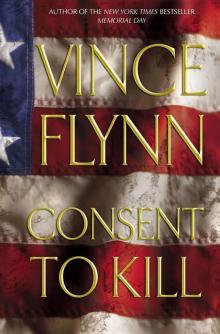 Consent to Kill
Consent to Kill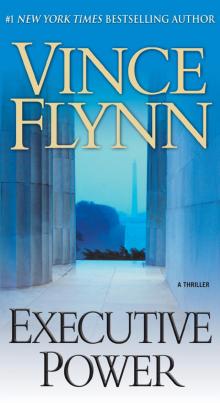 Executive Power
Executive Power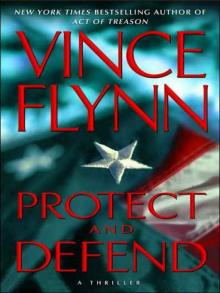 Protect and Defend
Protect and Defend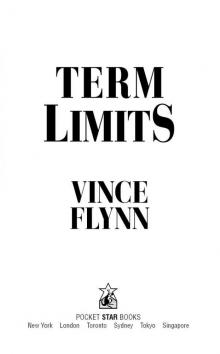 Term Limits
Term Limits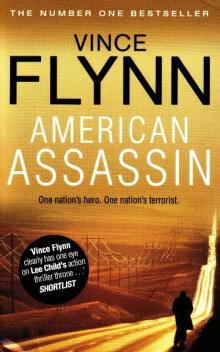 American Assassin
American Assassin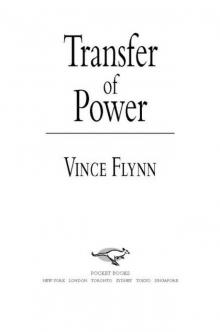 Transfer of Power
Transfer of Power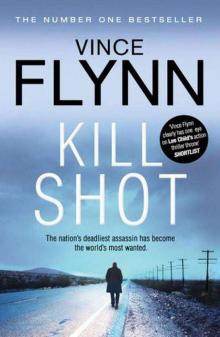 Kill Shot
Kill Shot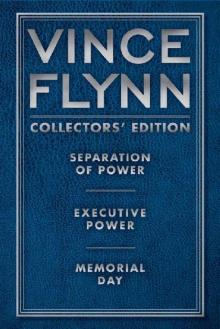 Vince Flynn Collectors' Edition 2
Vince Flynn Collectors' Edition 2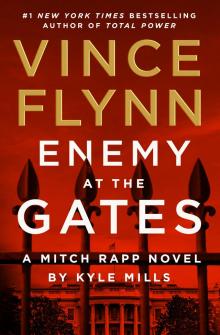 Enemy at the Gates
Enemy at the Gates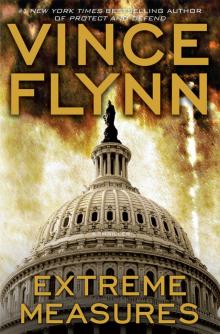 Extreme Measures
Extreme Measures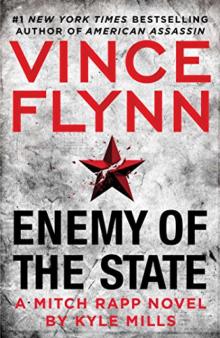 Enemy of the State
Enemy of the State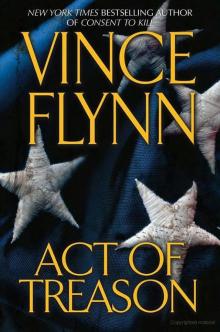 Act of Treason
Act of Treason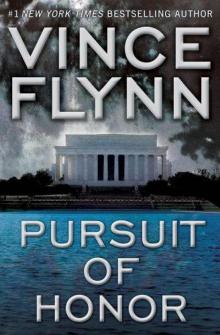 Pursuit of Honor
Pursuit of Honor The Survivor
The Survivor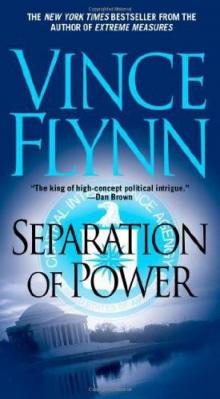 Separation of Power
Separation of Power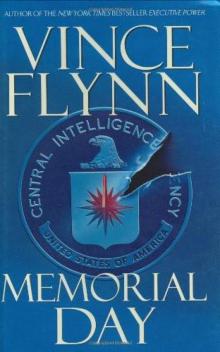 Memorial Day
Memorial Day The Last Man
The Last Man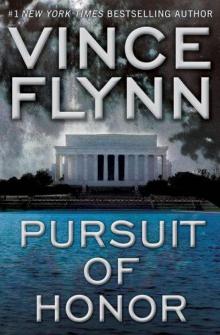 Pursuit of Honor_A Thriller
Pursuit of Honor_A Thriller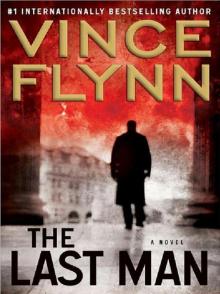 Mitch Rapp 13 - The Last Man
Mitch Rapp 13 - The Last Man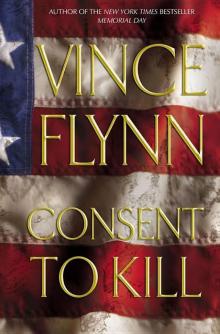 Consent to Kill:
Consent to Kill: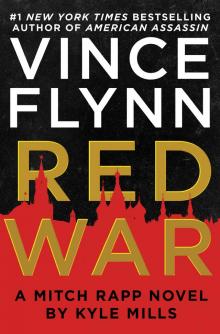 Red War
Red War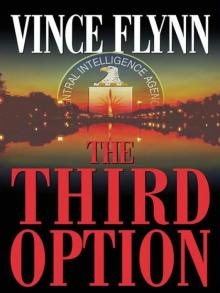 Mitch Rapp 02 - The Third Option
Mitch Rapp 02 - The Third Option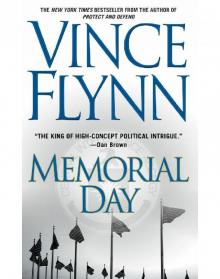 Mitch Rapp 05 - Memorial Day
Mitch Rapp 05 - Memorial Day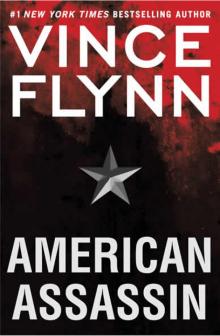 Mitch Rapp 11 - American Assassin
Mitch Rapp 11 - American Assassin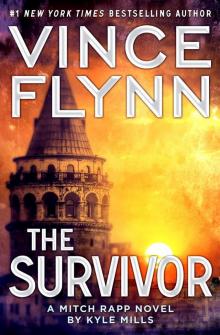 Mitch Rapp 14 - The Survivor
Mitch Rapp 14 - The Survivor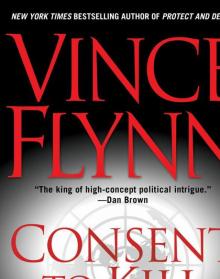 Mitch Rapp 06 - Consent to Kill
Mitch Rapp 06 - Consent to Kill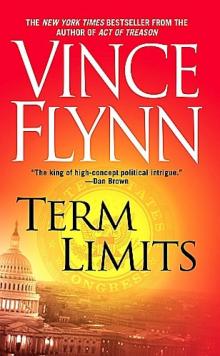 Term Limits mr-1
Term Limits mr-1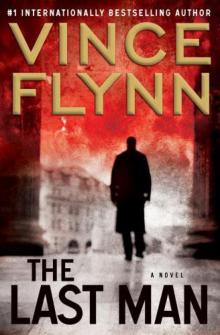 The Last Man mr-13
The Last Man mr-13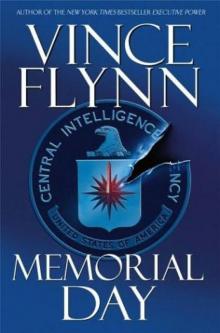 Memorial Day mr-5
Memorial Day mr-5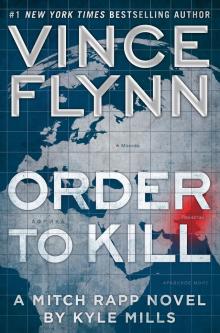 Order to Kill
Order to Kill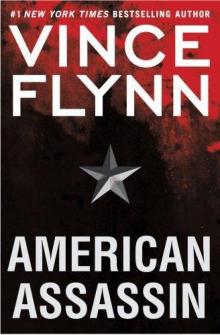 American Assassin: A Thriller
American Assassin: A Thriller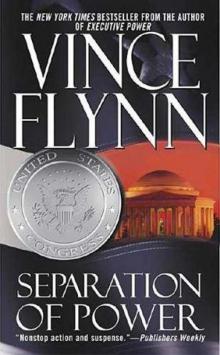 Separation of Power mr-3
Separation of Power mr-3